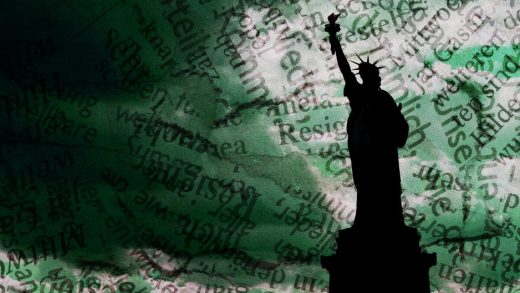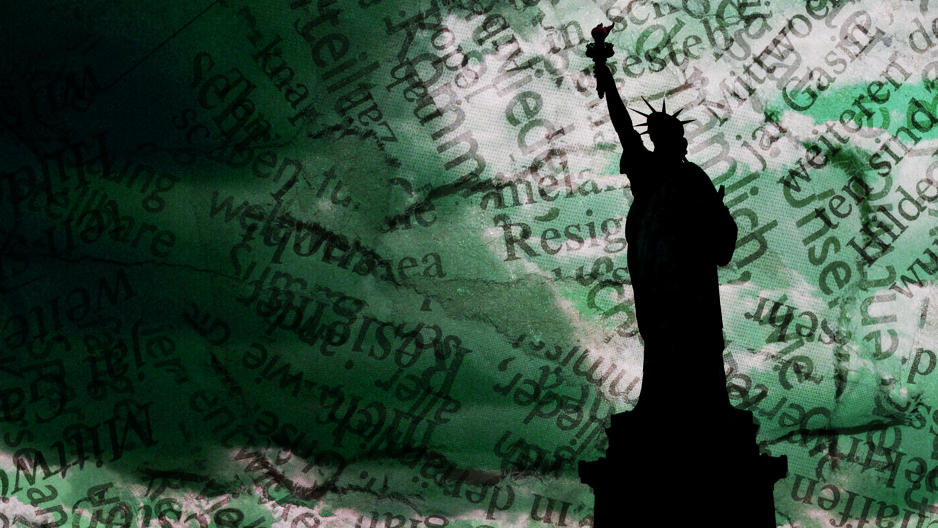How Fake News Reinforced My Faith In The First Amendment
What does the First Amendment mean in the age of “fake news”?
I’ve been asking that question ever since the election, but Nat Hentoff’s death on Saturday really made me grapple with its substance. The legendary writer and jazz critic, who worked with me at the Village Voice in the mid-1990s, was the fiercest free speech warrior I’ve ever known. Whether Hentoff was defending the right of the Nazis to march in Skokie, Illinois, or condemning political correctness on college campuses, or tangling with feminists over proposals to ban hate speech, he stood firm in his commitment to the First Amendment. For him, except for the “yelling fire in a movie theater” hypothetical, free speech was absolute. There were no exceptions.
But it was a different era, when hate and lies spread through printed newsletters and pamphlets read by maybe a few hundred people, and it was easier to defend bigots’ right to free expression. Today, when conspiracy theories, lies, and bigotry can be shared with tens of millions of readers via Facebook and Twitter and other social media, is it naive to still be such a warrior for the First Amendment?
Hentoff was an old-fashioned liberal—an atheist born Jewish in a Boston suburb, he fought in the civil-rights movement, befriended Malcolm X, collaborated with revolutionary artists like Charles Mingus and Gil Scott-Heron, and condemned fascism and the excesses of capitalism. But for him, even the most hateful voices, whether they were homophobic radio DJs or KKK members, deserved the protection of the First Amendment.
Hentoff hated what the bigots stood for but he understood that the First Amendment was established by our Founding Fathers for them as well as his progressive friends. In his book, Free Speech for Me But Not For Thee, he perfectly captured the hypocrisy of liberals who demanded their right to say whatever they wanted while trying to figure out ways to suppress the voices of their enemies. For him, the First Amendment is even more crucial for those voices on the fringe and at the extreme ends of the ideological spectrum.
He believed that the best way to combat hatred and bigotry and greed, and to create a better world, was by overwhelming it with more persuasive speech and stronger arguments and moral actions rather than censorship or suppression.
When I was in college, I devoured his columns, which felt like Biblical passages handed down from a righteous God. They taught me so much about the few principles in life that are worth living and dying for. One of them is to forever oppose the death penalty, that no human being has the right to take the life of another, no matter how horrible a person (even Hitler or Stalin or Pol Pot).
And the other is to vigorously advocate for free speech with all of your heart and soul. Amid the tumult of some controversy dominating the headlines in those years, I’d begin his columns in a vengeful state of mind—angrily demanding that ugly voices and bigoted people be cordoned off or shut down or exiled—and I’d always finish reading them with Nat having taught me that even their voices deserved to be heard. And I was inspired to fight even harder for the First Amendment. Because in the end, through the force of our arguments and our empathic vision, justice will prevail.
But what if you disagree with the meaning of the words “free” and “speech”? And what if you use your free speech rights to make up a completely erroneous story about a public figure and deceptively describe it as news?
Anyone involved in reporting and reading the news since the election has been caught up in the debate over fake news, stories such as “FBI agent suspected in Hillary email leaks found dead in apartment in murder-suicide” that went viral on Facebook and were completely fictitious. In the days after Donald Trump’s surprise victory, some blamed the preponderance of fake news, much of which attacked Clinton, for influencing the electorate. Since then, the phenomenon has led to real-world consequences, such as the gun-toting Pizzagate believer who fired shots at the pizzeria in Washington, D.C., that was falsely linked to a fictitious pedophile ring run by Clinton and her aides.
And the concept has become more muddied in the eyes of the public, with conservatives appropriating it to attack any erroneous reporting by the mainstream media. In the wake of the furor, Facebook and Twitter adopted some changes that enabled those platforms to minimize the presence of fake news, prompting some to fear that the hysteria was being used to justify censorship. And the term has become so twisted and misunderstood that some, like the Washington Post‘s Margaret Sullivan, are even calling for it to be retired: “Instead, call a lie a lie. Call a hoax a hoax. Call a conspiracy theory by its rightful name.”
Whatever you call it, it still exists and is expected to keep growing in power and reach, polluting our discourse and even upending the common set of facts required for any healthy debate. Elsewhere on the internet, the hate speech protected by Hentoff is thriving, especially on Twitter and Facebook, where pockets of white supremacists and Nazis and misogynists can spew their anger. And haters and bullies can harass and troll their victims into suicide. And it’s where ISIS’s social media soldiers seduce new recruits to their murderous cult. Suddenly lies and hoaxes and hate speech are everywhere, reaching hundreds of millions of people around the world.
So in this day and age free speech suddenly seems like less of a priority, like some precious principle only possible in a perfect or a less dangerous world. Back when Hentoff was preaching First Amendment purity, it was a different era. The media was dominated by mainstream newspapers and magazines and TV and radio networks, which tended to tread carefully and navigate the middle, out of a fear of offending viewers and driving away advertisers. Extremists only had a few outlets for their vitriol—small newsletters and pamphlets that reached at most a couple thousand readers. The one exception was talk radio, which really grew in the 1990s and continues to spew vicious lies and innuendo to millions of listeners. Now, through social media, that dark echo chamber has grown ever louder.
One of Hentoff’s heroes, Justice Louis Brandeis, once wrote that “falsehood and fallacies” could be exposed through discussion and that the “remedy to be applied is more speech, not enforced silence.” But in today’s environment, especially when elections can be swayed by a swarm of fake news, that belief risks appearing naive, writes Princeton professor Peter Singer.
What would Nat say? Would he still stand by his principles in the era of social media and fake news and Twitter trolls? Would he protect the right of some teenager in Macedonia or curmudgeon in Manhattan to spread a lie halfway around the globe to an audience of millions with the touch of a button?
I believe Nat would have stood by his principles. With the exception of violent threats and harassment, which are not protected speech, he would have defended the rights of racists and haters and misogynists and anti-Semites to spew their vitriol on Facebook and Twitter and everywhere else online. He would have understood that democracy is messy and that the government regulating speech is a slippery slope that ends in an Orwellian state that outlaws unacceptable opinions.
Hentoff never wrote about free speech issues in the age of social media, as far I know, but it’s pretty clear where he stood in recent debates over the issue. When some academics, including Obama’s former regulatory czar Cass Sunstein, voiced support for restrictions on free speech, he condemned such efforts to trim the First Amendment. Amid alarm over the explosion in spending on political campaigns, Yale Law School professor Owen Fiss once wrote that “we may sometimes find it necessary to restrict speech of some elements of our society in order to enhance the relative voice of others.” And amid the success of conservative talk radio, Sunstein voiced support for the government requiring the media to give dissenting voices a “right to reply.”
Hentoff was fierce in his denunciation of such ideas: “If there is a mandated right to reply to the press, who will administer that right? The government, of course. So the governmental decision to tell an editor what to print—an action hitherto forbidden by the First Amendment—could well be a political decision to favor the incumbent government.”
As a journalist who relied on reporting and the facts, Hentoff would have been horrified by fake news but as a free speech warrior, he would fight for its right to not be suppressed by the government. As for Facebook’s recent efforts to combat fake news, by partnering with fact-checking organizations to identify fictitious stories and to warn users about them, those steps might not have bothered him so much if it wasn’t being done by Facebook. After all, since it’s the biggest platform in the world, it has an audience of a billion-plus users, far more than any news outlet and almost any government on the planet. Its role is so outsized that any effort to filter the news could be perceived as an attempt to chill dissent and opposing viewpoints. (Not to mention concerns about the ability of understaffed fact-checking organizations to take on this task and the fact that Facebook’s new system doesn’t apply to videos, memes, or photos.)
Yet is drawing a line between fact and fiction, by flagging such content, any different in essence from a newspaper labeling stories that are news, analysis, and opinion? Facebook is a private company and, much like most TV networks and newspaper publishers whose editors and publishers filter out content they consider objectionable or inaccurate, it has every right to treat such content differently.
Facebook and Twitter need to be very careful in how they proceed when it comes to “fake news”—just as their vast influence can spread unfounded rumors, it also means that overzealously clamping down on unacceptable voices has a greater impact and may stifle dissenting points of view. Along with erroneous stories about the Pope endorsing Trump, there’s also the risk that a cogent analysis employing exaggerated metaphors to make its point also gets caught up in the blacklist of fake news (such as one that suggests a potential papal endorsement as Trump’s dream scenario). And censoring even the craziest conspiracy theories, like Pizzagate, will just fuel their resurgence underground where they linger unchallenged, poisoning minds.
And it’s up to all of us to make sure that the government—whether the new Trump administration or your state and local elected officials—doesn’t stifle opposing viewpoints. Trump loves to attack the media and has expressed a willingness to “open up libel laws,” potentially making it easier for public figures to sue journalists who report on their misdeeds. And his wife, Melania, hired the same lawyer bankrolled by Trump adviser Peter Thiel to destroy Gawker, when she disputed a story in the Daily Mail. And there is concern that Trump could use the U.S. government’s vast information apparatus, from federal agencies’ public relations departments to the Voice of America to his own Twitter account, as a giant propaganda operation that is more focused on punishing his enemies and manipulating opinion than informing the public.
Nat would have been the first one to denounce such tendencies. Not because he was a partisan—he viciously criticized the Obama administration for its lack of transparency—but because he was a warrior for the First Amendment. As all of us should be.
Fast Company , Read Full Story
(39)



